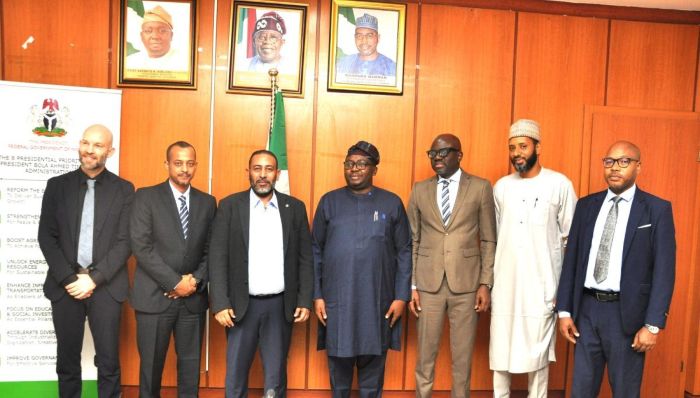IDB Backs Nigeria’s Power Reform Push, Offers Funding for Energy Infrastructure Expansion

In a significant show of international support for Nigeria’s power sector transformation, the Islamic Development Bank (IDB) has expressed its commitment to partnering with the Federal Government on key infrastructure upgrades—signaling a new era of strategic and programmatic investment in Nigeria’s energy future.
During a high-level visit to the Minister of Power, Mr. Adebayo Adelabu, officials of the Jeddah-based multilateral lender confirmed their readiness to inject fresh funding into Nigeria’s power value chain under a new Country Engagement Framework (CEF). The IDB team, led by Mr. Alagi Gaye, noted that the bank was shifting from piecemeal project support to coordinated, policy-aligned programmes that reflect Nigeria’s energy realities.
From Project-Based Aid to Policy-Driven Partnership
Unlike previous one-off interventions, the Islamic Development Bank is now tailoring its engagement to Nigeria’s national electrification goals, regulatory landscape, and reform priorities—particularly in generation, transmission, and distribution.
“We are developing our first Country Engagement Framework since Nigeria joined IDB in 2005,” Gaye revealed. “Our aim is to align support with Nigeria’s sector-wide transformation strategy.”
The IDB currently manages an active $2 billion portfolio in Nigeria, spanning energy, agriculture, education, and transport. But the bank is now eyeing deeper involvement in power sector modernisation, with a view to unlocking private capital, scaling renewable energy access, and bridging electricity gaps in underserved areas.
Minister Adelabu: Reforms, Partnerships and Ambitious Power Plans
In his remarks, Minister Adebayo Adelabu welcomed the IDB’s commitment, noting that President Bola Tinubu’s Renewed Hope Agenda prioritises a stable, reliable, and inclusive power sector.
He highlighted several transformative initiatives already underway:
- The $2.3 billion Presidential Power Initiative (PPI) with Siemens Energy, which has launched its pilot phase with the installation of 10 transformers and mobile substations to enhance grid capacity.
- The proposed “Super Grid” project—a bold plan to modernise the national transmission backbone, reduce system redundancy, and enable renewable energy integration. The project has received backing from the World Bank and AfDB.
- The Presidential Metering Initiative (PMI), which targets the deployment of two million electricity meters annually over the next five years to bridge the metering gap, currently estimated at 7 million customers.
- The “Mission 300” rural electrification programme, leveraging solar mini-grids and home systems to power agriculture, schools, clinics, and households in off-grid communities.
“These programmes are not just technical—they are people-focused,” Adelabu emphasized. “Power reform is about productivity, jobs, rural development, and ultimately, economic competitiveness.”
Addressing DisCos and Climate-Driven Energy Imperatives
Despite the privatisation of Nigeria’s electricity distribution segment, Minister Adelabu acknowledged that performance gaps persist, especially in revenue collection and service delivery. He reiterated the Federal Government’s 40% equity in DisCos and ongoing efforts to restructure governance and boost accountability through partnerships.
On the climate front, Adelabu offered a pragmatic take: “Nigeria’s transition to renewables is driven by necessity—not global emissions targets.” With Africa contributing less than 4% of global greenhouse gases, the minister said the continent must prioritise access, affordability, and productivity over carbon compliance.
BRANDECONOMY INSIGHT: A Smart Pivot to Programme-Based Energy Finance
The IDB’s shift from fragmented, project-by-project funding to a sector-wide programme approach aligns with international trends in development finance—and positions Nigeria to leverage multilateral capital more strategically.
As global capital for infrastructure becomes increasingly tied to resilience, inclusivity, and climate-conscious development, Nigeria’s clear articulation of reform goals—underpinned by legislation like the Electricity Act 2023—sends the right signal to serious financiers.
The IDB’s intervention offers more than funding—it provides a template for smart collaboration, where investment meets reform, and where impact is measured not just in megawatts, but in empowered communities, growing enterprises, and a stronger economy.











